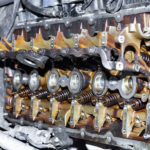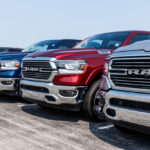Over the last five years, Fiat has struggled to combat dropping sales numbers in the US. Rumors of the brand pulling out of the American market may soon become a reality, with Fiat selling 44% fewer units in the past year. Despite offering some of the most affordable cars in the market, why is Fiat struggling to capture the US market?
An automotive pioneer
Even with a history of over 100 years, most Americans know little about the Italian brand. Originally known as Fabbrica Italiana Automobili Torino, Fiat is considered a pioneer in the Italian automotive industry. The car manufacturer made its name after it debuted its first models in racing circles back in the 1900s. Fiat later established itself as a pioneer in the mass production of vehicles.
By 1923, Fiat established the Lingotto factory—the largest industrialized production facility in Europe at the time. It became the symbol of Fiat’s dedication to innovation in car making and assembly. It boasted five floors and a rooftop test track that was ahead of its time.
Fiat’s first foray into the U.S. market
The Italian brand first licensed a US plant in Poughkeepsie, New York to manufacture its cars in 1909. They were locally known as the Fiat Automobile Company. At the time, European cars were well received, and Fiat’s cars were considered luxury vehicles. They later expanded into building trucks, trams, and commercial vehicles.

Despite their early success, the U.S. factory had to shut down because of World War I. Aside from contributing to the war effort, the company also branched out into other industries like public transport and electricity. Post-war conflict in Italy later forced the automaker to focus on its domestic market and hold off on international operations.
Short-lived success stateside
After World War II ended, Fiat returned to North America with its most popular model—the Fiat 500. Producing the tiny car made sense post-war because resources were scarce and car manufacturers needed to quickly get back on their feet. The heyday of Fiat’s compact, fuel-efficient cars in the US came during a sales boom amid the ‘70s oil crisis.
Unfortunately, this success was short-lived. Fiat cars like the X1/9 looked great on the road but later proved to be extremely unreliable. They became notorious for overheating and stalling unexpectedly. The manufacturer was quickly plagued with warranty claims for cars that had low mileage. These issues, together with the rising popularity of muscle cars and trucks in the next decade, pushed sales numbers to drop significantly. Fiat eventually pulled out of the US market in 1984.
Old habits die hard
In 2009, the Fiat Group rescued American automaker Chrysler from bankruptcy. With rising gas prices at the time, it seemed like the logical choice to add environmentally-friendly compact cars to Chrysler’s roster. But despite the Fiat 500 being awarded the 2009 “World Car Design of the Year” at the New York Auto Show, the brand failed to make an impression on American car buyers when it was reintroduced in 2011.
It all boiled down to simple economics. The demand for small cars just wasn’t as strong as other segments. People weren’t looking to buy small cars, regardless of how cheap or economical they may be. American drivers continue to be obsessed with large vehicles. In fact, over 70% of new car sales are dominated by trucks and SUVs.

Finding Fiat
The 500 was originally marketed as a fuel-efficient car, and for years this was their main selling point. They were betting on the fact that oil prices will continue to rise, swaying car buyers away from gas-guzzling vehicles. Unfortunately for Fiat, oil prices stabilized and steadily declined since the recession in 2008.
They later switched strategies and marketed their cars as fashionable designer vehicles for a younger demographic, but to no avail. While some argue that few people remember the Fiat fiasco of the ‘70s, others say that the brand’s failure is due in part to its reputation for building faulty vehicles.
As popular car manufacturers commit to electrifying and creating hybrid variants of America’s beloved SUVs and trucks, a massive switch to compact cars is becoming more unlikely. Until Fiat finds a clear and distinct identity that will resonate with American drivers, its future in the US remains bleak.
Any information provided on this Website is for informational purposes only and is not intended to replace consultation with a professional mechanic. The accuracy and timeliness of the information may change from the time of publication.


















No, people stopped buying Fiats because their reliability is horrendous.